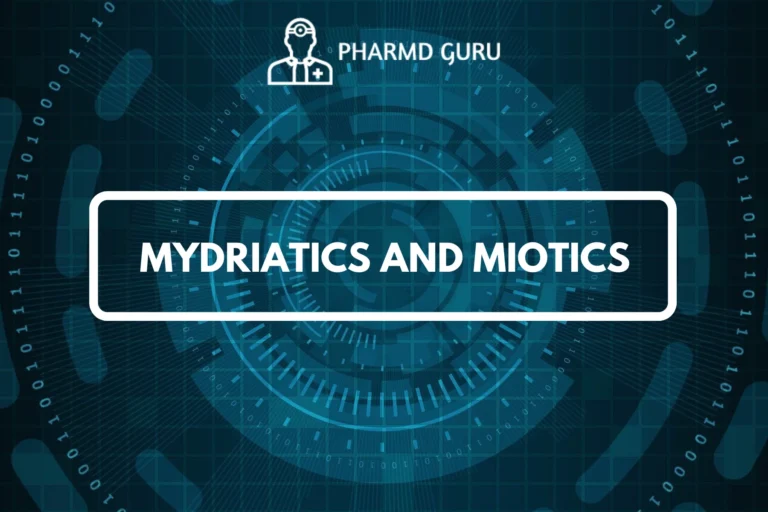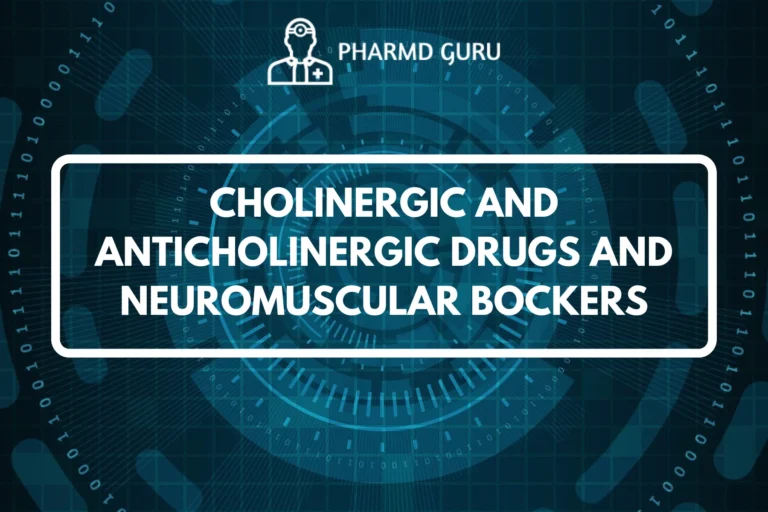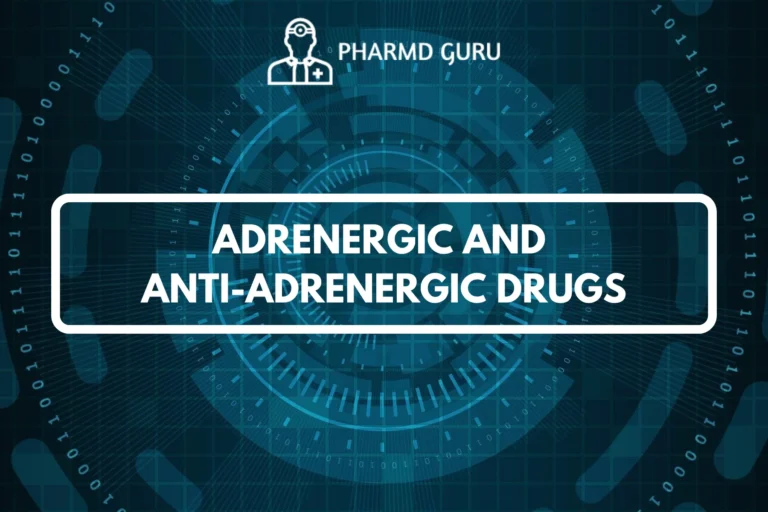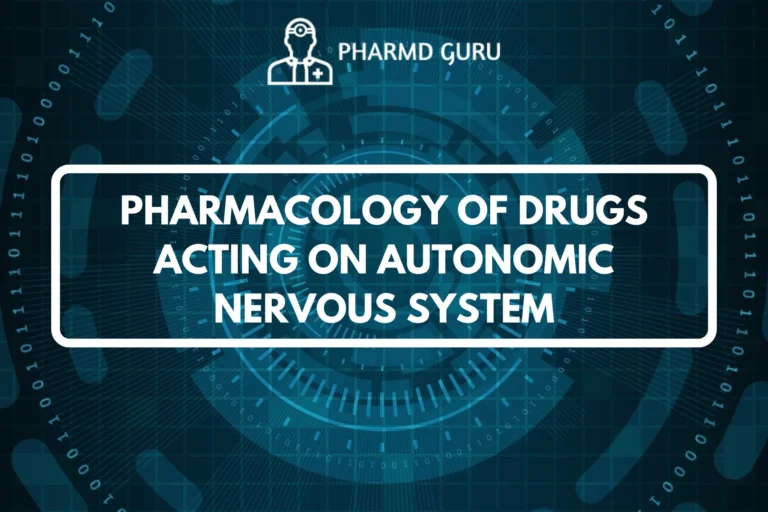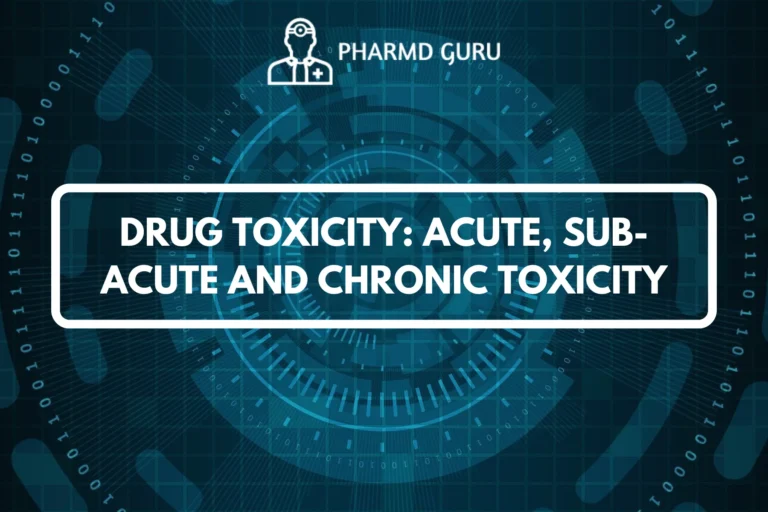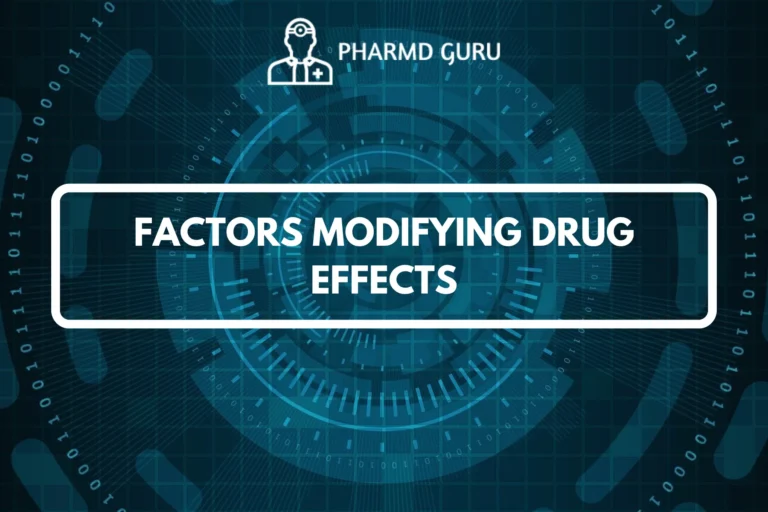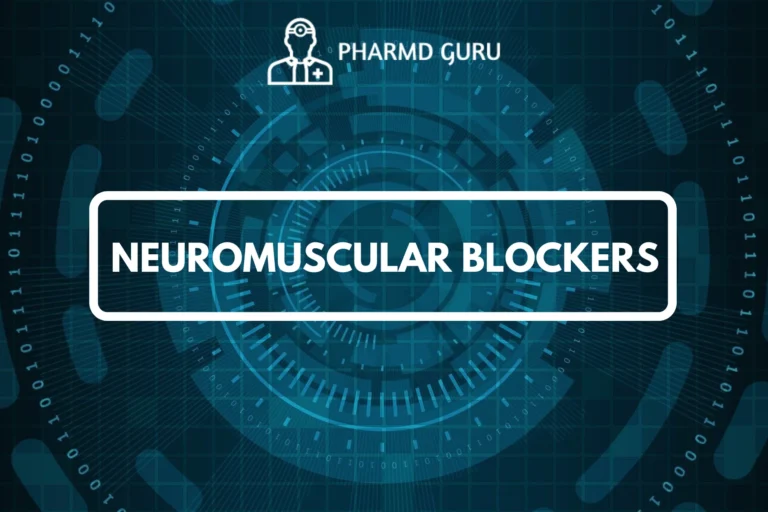
NEUROMUSCULAR BLOCKERS
Neuromuscular blockers are a class of drugs that produce muscle paralysis by interfering with neuromuscular transmission. These medications find their application in various medical settings, including surgical procedures and mechanical ventilation. In this article, we will provide an overview of…

